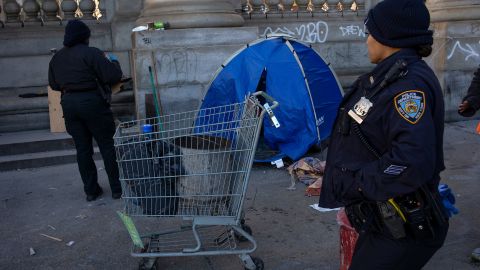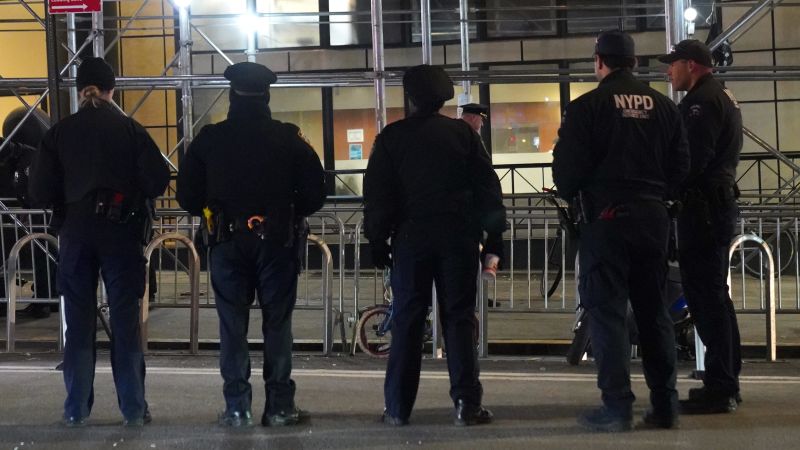CNN
—
A New York City directive allowing first responders to enforce a state law that allows them to potentially involuntarily commit people experiencing a mental health crisis can proceed after facing legal challenges by mental health advocates, a judge has ruled.
The ruling, issued Monday by U.S. District Judge Paul Crotty in the Southern District of New York, denied a motion brought by individuals and mental health organizations in December. The legal challenge asked a judge to issue a temporary restraining order and preliminary injunction against the city’s implementation of the policy.
The motion was filed on December 8 as part of an existing lawsuit that alleges New York City has consistently failed to provide safe and appropriate care to New Yorkers experiencing mental health crises. The plaintiffs argued the city’s plan is unconstitutional and violates an individual’s “freedom to live without unlawful seizures and excessive force by law enforcement.”
New York City Mayor Eric Adams first announced the directive in November as part of an attempt to address concerns about homelessness and crime.
Adams said it was a myth that first responders can only involuntarily commit those who displayed an “overt act” showing they may be suicidal, violent or a danger to others, CNN previously reported. Instead, he said the law allowed first responders to involuntarily commit those who cannot meet their own “basic human needs” – a lower bar.
New York Lawyers for Public Interest, a non-profit civil rights law firm, said in a statement to CNN it was disappointed by the court’s ruling.
“The rights of New Yorkers with mental disabilities, particularly those who are unhoused, remain imperiled by the city’s new involuntary removal policy. Our litigation challenging the city’s use of New York Police Department officers as first responders when someone is experiencing a mental health crisis continues,” reads the statement from the firm, which was one of the plaintiffs in the December lawsuit.
Nicholas Paolucci, the director of public affairs at the New York City Law Department, said in a statement to CNN that the defendants are “pleased the court agreed plaintiffs have no legal standing to halt the Mayor’s sound and compassionate plan.”
As part of the city’s plan, New York Police Department officers and first responders will get additional training to help them make such evaluations and a team of mental health technicians will be available, either via a hotline or video chat, to help them determine whether a person needs to be taken to a hospital for further evaluation, CNN previously reported.
The city also plans to develop specialized intervention teams to work side by side with NYPD officers.
Adams said first responders weren’t consistently enforcing the law because they were unsure of its scope, reserving it only for cases that appeared the most serious.
New York state enacted a law in 2021 to allow first responders to involuntarily commit a person with mental illness who needs immediate care. The directive led to a mixed response from officials, who acknowledged the challenges of properly and humanely treating mentally ill people.

“This is a longstanding and very complex issue,” NYPD Commissioner Keechant Sewell said in a statement. “We will continue to work closely with our many partners to ensure that everyone has access to the services they require. This deserves the full support and attention of our collective efforts.”
Mental health advocates argued in their legal challenge that the city’s policy will authorize officers with “little to no expertise in dealing with individuals with mental disabilities…to determine whether an individual should be forcefully – often violently – detained against their will.”
“If the Involuntary Removal Policy is permitted to continue to be implemented, Plaintiffs and countless other New Yorkers will suffer irreparable harm, including a substantially increased likelihood that they will be subjected to unlawful detention and involuntary hospitalization just for exhibiting behavior perceived by a police officer to be unusual – whether the individual has a mental disability or not,” the advocates’ December motion stated.
Note:- (Not all news on the site expresses the point of view of the site, but we transmit this news automatically and translate it through programmatic technology on the site and not from a human editor. The content is auto-generated from a syndicated feed.))



